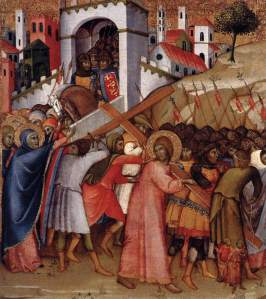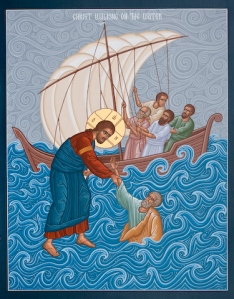Below you'll find the text of the message from yesterday as well as the discussion questions that we unpacked together during our 2nd week of unChristian. Last week we began what will be a four week long series called unChristian, looking at the perception that young Americans, many of our peers, neighbors, and even friends, family members have about Christianity and Christians. This postcard says it well, “Christianity has an image problem.” Last week we talked about the idea that people’s perception of Christians is their reality, whether it is actually true or not. And people’s perception right now of Christians is not that great. In fact when asked by a survey group what they thought of Christians, many 16-29 year olds gave 6 repeating thoughts. Christians are often considered to be: judgmental, anti-homosexual, too political, too sheltered, hypocritical and too concerned about getting others “saved”. Over the next 3 weeks we’ll be looking at 2 of these perceptions each week. This week we’ll be looking at the perception that Christians are judgmental and anti-homosexual.
In fact when asked about Christians these perceptions were the top two listed. The interesting thing about these two perceptions about Christians were both held by those outside the church and also, believe it or not, within the church as well. Now we are combining these two because being anti-homosexual is just being judgmental applied to a certain issue.
So I have to ask, why when asked what people think of Christians, are the top two things listed (especially from young adults) judgmental and anti-homosexual? Why are Christians perceived this way? Is it because Christians are trying to legislate morality? Are we more known for what we are against than what we are for? Is it because we suggest to people that they have to change their sinful behavior before God will love them and accept them? Is it because we say that we hate the sin and not the sinner when people that are homosexuals see their behavior as an aspect of their identity (and so what they hear is that we hate the sinner)?
Are we really following Christ’s own example when we judge the sinful behaviors of others? During Jesus’ own ministry, he was often put in the position of judge. The rich, young ruler wanted Jesus to “judge” him as someone who was good and would inherit eternal life (Lk 18:18-23). Martha wanted Jesus to “judge” Mary as not having done the right thing (Lk 10:38-42). The man who wanted Jesus to tell his brother to split the inheritance with him (Lk 12:13-15). Consider Jesus’ response: “Who appointed me a judge or an arbiter between you?” But did Jesus accept this role of “Judge”? Let’s look at a defining passage.
The passage we’ll be looking at today is one that many older manuscripts of the Scriptures don’t actually have. But we don’t have any reason to believe that this story isn’t actually an authentic story. The passage that I am talking about is John 7:53-8:11.
“Then they all went home, but Jesus went to the Mount of Olives. At dawn he appeared again in the temple courts, where all the people gathered around him, and he sat down to teach them. The teachers of the law and the Pharisees brought in a woman caught in adultery. They made her stand before the group and said to Jesus, “Teacher, this woman was caught in the act of adultery. In the Law Moses commanded us to stone such women. Now what do you say?” They were using this question as a trap, in order to have a basis for accusing him. But Jesus bent down and started to write on the ground with his finger. When they kept on questioning him, he straightened up and said to them, “Let any one of you who is without sin be the first to throw a stone at her.” Again he stooped down and wrote on the ground. At this, those who heard began to go away one at a time, the older ones first, until only Jesus was left, with the woman still standing there. Jesus straightened up and asked her, “Woman, where are they? Has no one condemned you?” “No one, sir,” she said. “Then neither do I condemn you,” Jesus declared. “Go now and leave your life of sin.”
Now what we see here in this scene is almost like a courtroom with the teachers of the law and Pharisees as prosecutors, the woman as the defendant, the crowd as the jury, and Jesus positioned as the judge. The teachers of the law and the Pharisees think they have trapped Jesus. They believe he had only two ways to answer their question of whether they should stone the woman. They said that the law of Moses says you should stone such a woman who was caught in the act of adultery. But they were only partially right because you see adultery is not an act you can commit alone. The law of Moses said you should stone both parties involved. So they were setting up the woman, and letting the man off the hook, all because they were hoping to trap and trip up Jesus.
Now they believe that if Jesus were to say, “Go ahead and stone her”, he would have brought down the strong hand of the Roman empire, because only the Romans had the prerogative to execute someone. The Jews had no power to put someone to death. Now if he said, “Don’t stone her” he would be accused of breaking the Mosaic law. So they thought, “Now we have him.” But how does Jesus respond? In a way that none of them even considered.
Now let’s go back to something that the teachers of the Law and Pharisee’s said when they brought the woman in. They said, “she was caught in the act.” Now we mentioned that adultery is a sin that can’t be done alone. And we wondered where the man was. Now Jesus response to their question of whether they stone her or not, touches on these facts. You see in Jewish law, witnesses to the capital offense began the stoning. When Jesus said, He who is without sin among you, let him throw a stone at her first, He was really said, "All right, let's execute her. But let's do it right. One of the witnesses has to have a hand in her execution. So who among you is the one who witnessed this crime, but only brought to Me the woman, not the man?" Jesus makes it plain - whoever the witness is, whoever the one who has the right to cast the first stone is, he is as guilty as the woman taken in adultery, because of his hypocrisy.
In verse 7, Jesus implies that if he is to take the role of judge, then everyone will stand guilty—no one is without sin in their lives. And so the men with the stones in their hands, ready to stone her, go away, one by one, starting with the oldest ones first, until no one was left. Not one person was left holding a stone. Everyone leaves; no one is left to judge or condemn her except Jesus. The only one who would have any right to condemn, judge and throw a son, is the only one who has no sin. All the people that were there before were also sinners just like she was. Jesus the only one that could throw a stone at her, didn’t. He didn’t condemn her. Jesus says it this way, “Has no one condemned you?” “No one, sir,” she said. “Then neither do I condemn you,” He acknowledges her sin and calls on her to leave her life of sin and to change her ways, but no where in this story (or any story for that matter in the gospels) does Jesus ever condemn or judge the woman. In fact, as John 3:17 says, “For God did not send his Son into the world to condemn the world, but to save the world through him.” Or put in the words found in the Message version, “God didn’t go to all the trouble of sending his Son merely to point an accusing finger, telling the world how bad it was. He came to help, to put the world right again.”
What if we applied this truth as followers of Jesus? Isn’t this how we want to be treated? None of us is without sin in our lives; all of us are in need of God’s grace and we are so thankful that Jesus loves us and accepts us in spite of our sin. Like the woman caught in adultery, our sinful ways and lives will only change when we have first received, accepted, and experienced the unconditional love of Jesus. If that’s true, then shouldn’t we be people who are focused only on showing unconditional love and grace, and not judgment and condemnation toward others? What if Christians and local churches became places known for their grace and love and not for their judgment? Do you think that would be attractive? Who have you judged in your life and what can you do to change your posture, and consequently, begin to change the perceptions? All of this does not ignore the complex issues surrounding such topics as homosexuality. But it does mean that we have a new and different starting point for our attitudes and actions: love and grace. Why? Because “God demonstrates his own love for us in this: While we were still sinners, Christ died for us” (Rom 5:8). Are we willing to follow his example?
Let’s continue the conversation about the text and the perception that Christians are judgmental and anti-homosexual. But let me throw this in there. This is a hot button issue with people on all sides of the issue. We, as the body of Christ, even if we disagree with each other, need to do it in the spirit of love and grace with each other. So feel free to disagree with each other, do it publicly, but do it in the Spirit of Jesus, best shown in this text.
1. When you hear the word “homosexual” what are your first reactions? Discuss your opinions and try to assess the reasons behind them.
2. If judgmentalism means you marginalize someone, describe a time when you have been judgmental towards someone else (whether regarding homosexuality or some other behavior you considered sinful). Compare that to a time when you were judged by another Christian who seemed wrongly motivated to find fault.
3. Have you ever heard the statement, “Hate the sin but love the sinner”? Have you ever used that phrase? Is that really possible? How does this approach help or hurt your ability to unconditionally accept anyone (whether they are followers of Jesus or not)?
4. What is God saying to you through the scripture, message and conversation? What are you going to do about it? What do you think God is saying to us as a community, and what should we do about it?







